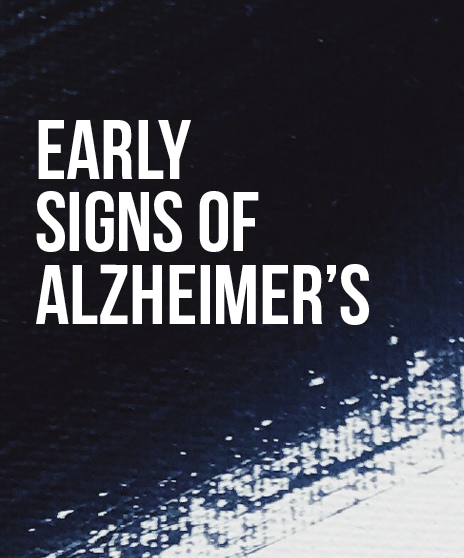Dementia is an umbrella term used to describe a group of neurological disorders characterized by a decline in cognitive function. Alzheimer’s disease is the most common form of dementia.
What is Alzheimer’s Disease and at what age do people get it?
Alzheimer Disease is caused by abnormal protein build-up in the brain, specifically amyloid plaques and tau tangles. These deposits disrupt the normal functioning of brain cells and contribute to the progressive decline in memory, thinking and behavior associated with the disease.
The risk of developing Alzheimer’s increases with age. According to a study published by the National Center for Biotechnology Information, the average age of dementia onset in the United States is estimated to be 83.7 years old. Almost two-thirds of Americans with Alzheimer’s dementia are women.
Researchers are still trying to discover the root cause of the disease and how it progresses. It is believed to be caused by a combination of genetic, environmental, and lifestyle factors. There is no specific chronic disease that directly causes Alzheimer’s disease. However, certain chronic conditions that have been associated with an increased risk of Alzheimer’s include cardiovascular diseases (like hypertension and heart disease), diabetes, obesity, sleep disorders and depression.
So how do we tell the difference between aging and Alzheimer’s disease?
Differentiating between normal aging and Alzheimer’s disease can be challenging. Symptoms vary among individuals and may initially be subtle. Here are some common early signs to be aware of:
Memory loss: Memory loss is a common symptom associated with Alzheimer’s disease. While some degree of memory decline is a normal part of aging, Alzheimer’s-related memory loss is more severe and progressively worsens over time. Occasional memory lapses like misplacing car keys or momentarily forgetting our purpose in a room are normal but In the early stages of Alzheimer’s, individuals may experience difficulty remembering recent events, conversations or newly learned information.
Consider the following memory loss signs due to Alzheimer’s disease:
- Frequency and persistence: If you or a loved one frequently repeats questions or forgets recent conversations, it may be a red flag.
- Difficulty with familiar information: Forgetting common names or struggling to use everyday items, such as a toothbrush, could be indicative of more than ordinary memory lapses.
- Repetitive questioning: If someone consistently asks the same questions repeatedly, even after receiving an answer, it may suggest a decline in memory function.
Difficulty with problem-solving and planning: Alzheimer’s can affect a person’s ability to develop and follow a plan or work with numbers. They may have trouble following a familiar recipe, managing bills or keeping track of monthly tasks.
Confusion with time or place: Individuals may lose track of dates, seasons, or the passage of time. They might have trouble understanding something if it is not happening immediately or they may get lost in familiar places.
Challenges with visual images and spatial relationships: Some people with early-stage Alzheimer’s may have difficulty judging distances or determining color or contrast, leading to problems with driving or reading.
Note: Vision loss and decreased hearing can lead to worsening progression of the disease, as we are not functioning with all our senses. Getting annual eye exams as well as audiology assessments for hearing aids is recommended.
New problems with speaking or writing: Individuals might struggle with finding the right words, participating in conversations, or writing. They may frequently pause or struggle to complete sentences.
Misplacing things and inability to retrace steps: A person with Alzheimer’s may put things in unusual places and be unable to retrace their steps to find them. They might accuse others of stealing or may lose valuable items.
Decreased or poor judgment: Individuals may experience changes in judgment or decision-making. They may pay less attention to personal grooming, hygiene, or fall prey to scams or frauds.
Social withdrawal: Early signs of Alzheimer’s can include a withdrawal from work or social activities. The person may start to avoid hobbies, social gatherings, or other activities they previously enjoyed.
Mood and personality changes: Individuals might experience mood swings, increased irritability, depression, anxiety, or changes in personality. They may become easily upset or confused, especially in unfamiliar or challenging situations.
What should I do for myself or a loved one?
At P3 Health Partners, we encourage all patients, especially those aged 65 and above, to establish a relationship with their primary care provider and have their annual wellness exam every year.
Developing a strong bond with your primary care provider is essential for your overall well-being. This way, your provider becomes familiar with your medical history and can identify any potential issues. It’s important to remember that experiencing one or two of these symptoms doesn’t necessarily mean you have Alzheimer’s disease. During these checkups, your primary care provider will assess for these early signs of Alzheimer’s disease. This helps in implementing interventions to slow down its progression and seek assistance earlier.
If you’re concerned for yourself or a loved one, please schedule an appointment for a wellness exam with one of our P3 providers.
Book an appointment today.


